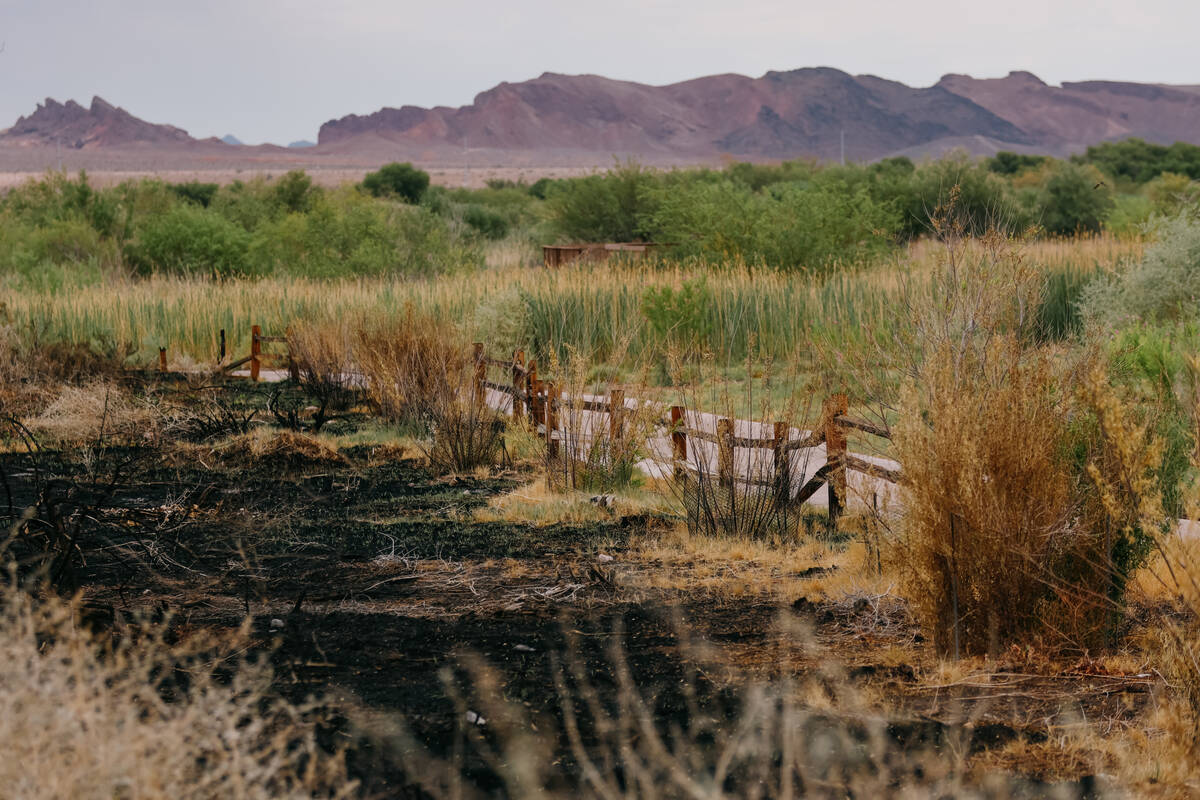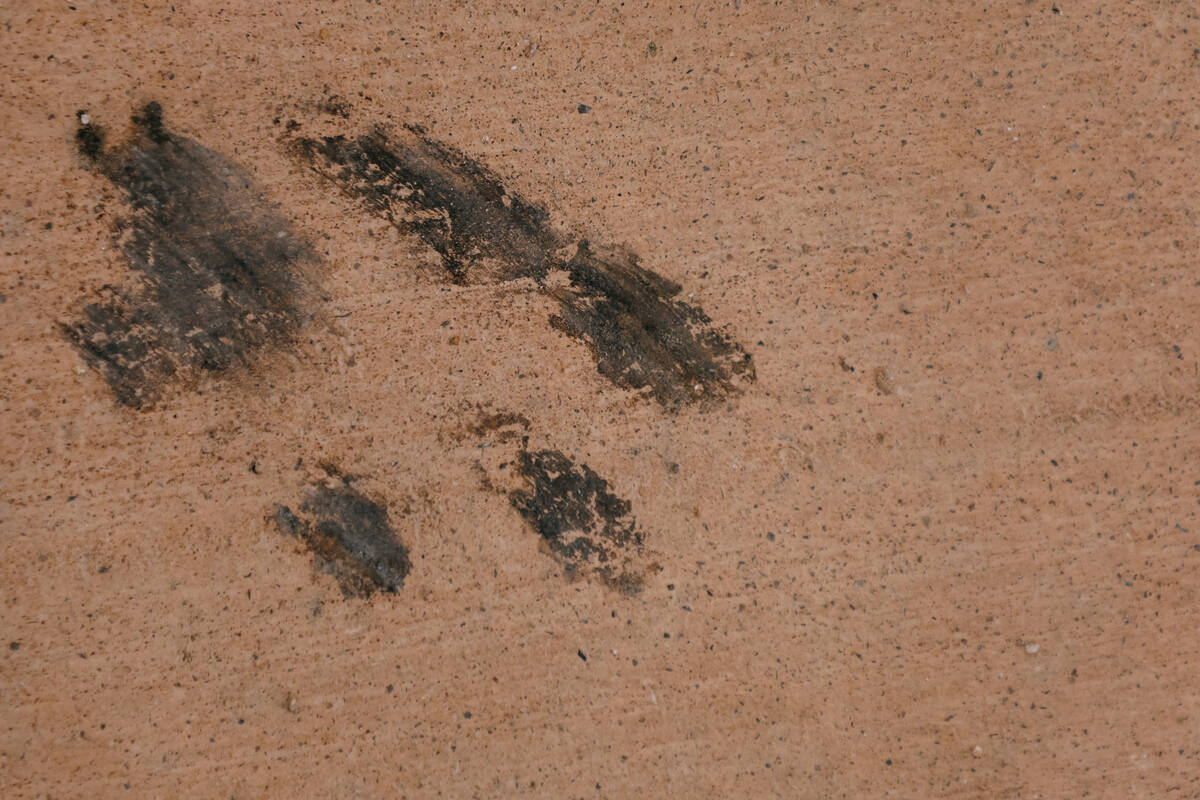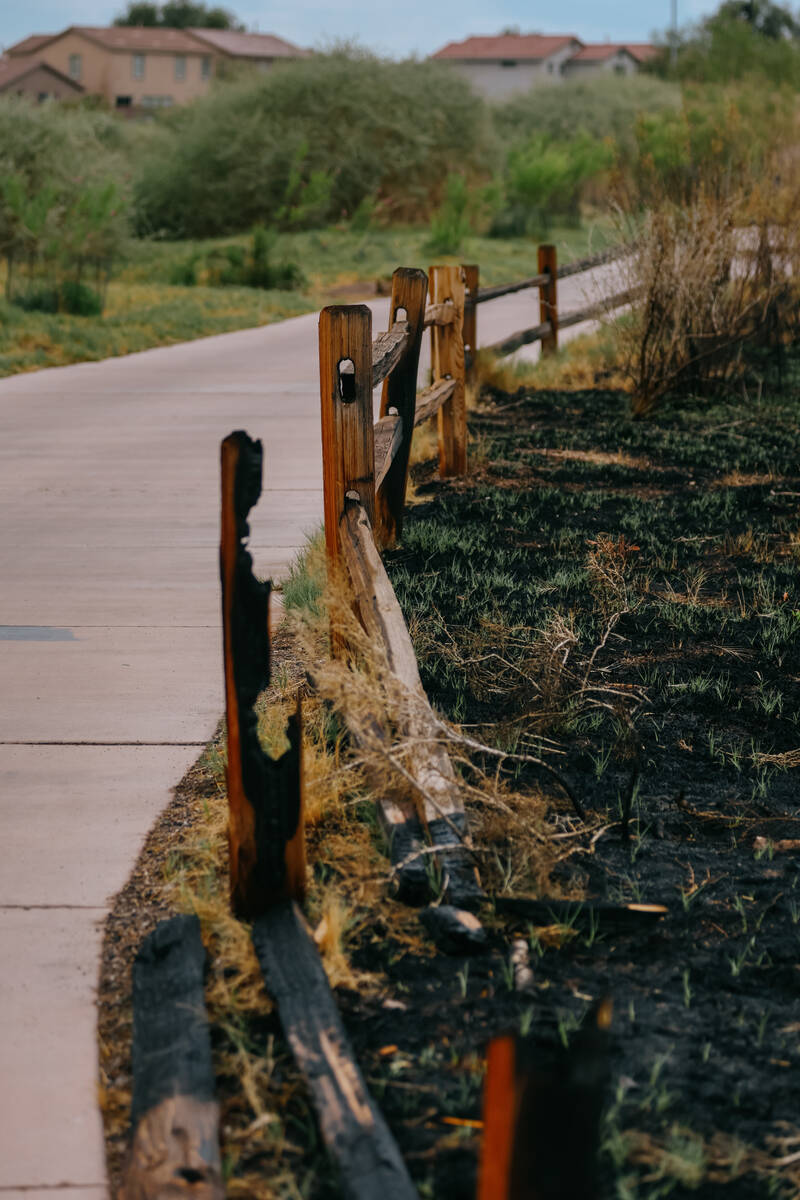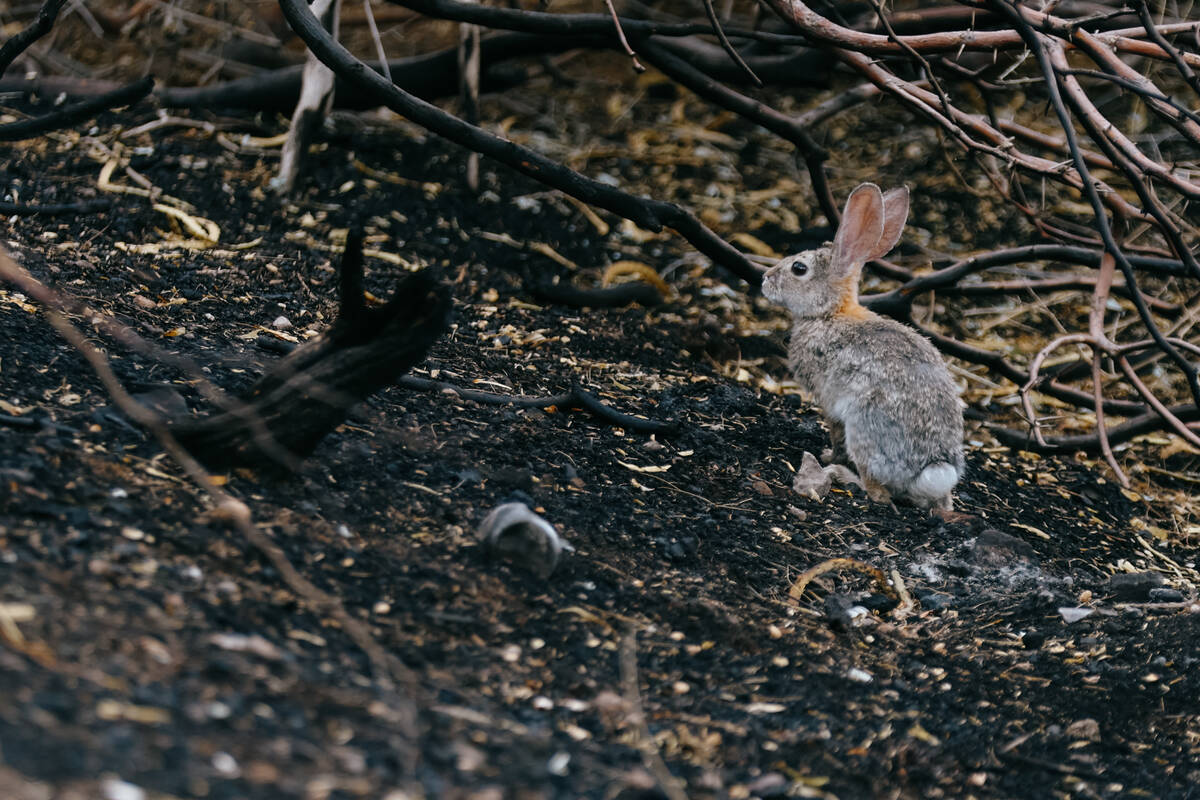This is how Clark County Wetlands Park will recover from recent fires
Experts expect burned-over sections of Clark County Wetlands Park to bounce back quickly after a series of fires blackened about 150 acres of riparian vegetation in or near the 2,900-acre park.
The most recent fire broke out on June 24 downstream of the Duck Creek Channel and burned 110 acres of common reed, tamarisk and willow before it was contained two days later. The exact cause remains under investigation, but park officials said they believe it and three other fires this year were human-caused.
Park Manager Elizabeth Bickmore said vegetation found in riparian and wetland areas is adapted to fire and floods and should recover quickly.
“Wetlands Park does intend to supplement some of the areas with plantings in the coming years, but we anticipate much of the vegetation will grow back on its own,” Bickmore said.
Earlier fires in other wetland areas are already seeing natural regrowth, she said.
Water impacts
The plants in the wetlands are crucial for treating water in the Las Vegas Wash before it flows into Lake Mead, but the fires have had no significant impact on water quality so far, according to Beth Moore, Southern Nevada Water Authority’s public information officer.
Wastewater in the Las Vegas Valley is highly treated before flowing into the Las Vegas Wash, though stormwater runoff is not, said Zane Marshall, the director of the water resources department for the water authority and president of Red Rock Audubon.
“Wetlands vegetation helps to polish or improve water quality as that water moves through the wetlands,” he said.
Wildlife impacts
Birds and other animals make the riparian area home because of its tall cottonwoods and willows and know to relocate when smoke from wildfire approaches, Marshall said, though they often end up displaced after fire damages their habitat.
The June fire will have a direct, immediate impact on nesting but is unlikely to create large long-term effects, Marshall said.
Jason Eckberg, the environmental biology supervisor for the water authority, agreed that short-term displacement would be one of the largest impacts of the fire. He said coyotes and rabbits likely use the wetlands area to shelter from the sun, but it’s unlikely that those animals had made permanent residences there.
“The most current burn area is not a very good habitat for much of anything,” he said. “It doesn’t provide a lot of habitat for things to build homes or shelters in.”
Fire causes
The June 24 fire was the fourth in or near Wetlands Park this year. A fire in March burned 34 acres, an April fire burned 2.1 acres and a fire earlier in June fire burned 3 to 5 acres.
Stacey Welling, a Clark County Public Information Officer, said the causes of the fires are undetermined. If new information becomes available, the county will investigate.
“About 70 percent of the fires in Southern Nevada are human-caused,” said Brian O’Neal, Clark County deputy fire chief. He said human activities such as cooking, smoking, shooting and fireworks are primary causes of fire.
Homeless people are known to gather around the Wetlands Park area, which has sparked community concern about their activities relating to fire hazards, but Wetlands Park is a challenging area for organizations working with homelessness in Clark County, said Stacey Welling, Clark County public information officer.
“Officers with Clark County’s Office of Public Safety, homeless outreach teams with Clark County Social Service and Help of Southern Nevada regularly receive and respond to reports of homeless encampments in parks and areas throughout the community, including Wetlands Park,” she said.
While Clark County Commissioner Jim Gibson didn’t directly respond to the Review-Journal’s request for comment on homelessness in the area, Welling said he is working with the Clark County Office of Public Safety to respond to encampments in the area and provide outreach.
“Outreach teams all too often find that most unhoused individuals are resistant to accepting services or relocating into shelters, and it may take multiple contacts with individuals before there is willingness to accept assistance,” she said.
An earlier version of this story incorrectly reported the cause and status of investigations into recent fires at Clark County Wetlands Park. The causes remain undetermined and no investigations are ongoing.
Contact Megan Howard at mhoward@reviewjournal.com. Follow her on X at @meganmhxward.


























